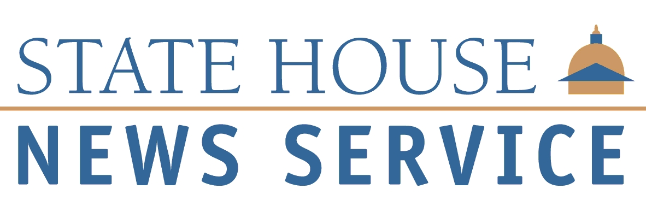CITING GROWTH, HARNESS INDUSTRY BIDS TO PROTECT RACE HORSE FUND
By Stephanie Murray
STATE HOUSE NEWS SERVICE
STATE HOUSE, BOSTON, JUNE 27, 2017….Key players in the state’s horse racing industry want to keep
their hands on state fund that they say ignited a “very swift renaissance” and positioned the state’s
harness racing industry as a competitive player in the Northeast.
Frank Antonacci, president of a racing stable in Connecticut, said the Massachusetts harness racing
industry is an “overwhelming success story.” For proof that the Race Horse Development Fund is a boon
for horse racing, Antonacci said legislators should look to Plainridge Park Casino in Plainville.
“There have been a lot of headlines regarding the validity of the fund and what the future of the fund
should be and that horse racing is dying, is dead in Massachusetts,” Antonacci said. “Though
thoroughbred racing has come upon hard times, … there’s a much greater story of harness racing that’s
alive and well and burgeoning in the commonwealth of Massachusetts.”
The Harness Horseman Association of New England briefed lawmakers about the state’s harness racing
industry and the impact of the Race Horse Development Fund, which was created under the 2011
expanded gambling law and draws its revenues from wagering. The Senate proposed sweeping $15
million from the fund for programming and operations for the Department of Agricultural Resources and
the Department of Conservation and Recreation in its fiscal 2018 budget.
Right now, the fund fuels harness racing, also known as standardbred horse racing, at Plainridge Park
Casino. The track saw a $10 million increase in live handle since 2014 and another $3 million increase
from simulcasting, also known as live broadcasting, according to the United States Trotting Association.
“Every metric from handle to the amount of horses in the state to the amount of racing days in the
state, all of these have grown in multiples,” Antonacci said.
The fund is expected to grow when casinos open in Everett and Springfield and contribute a percentage
of revenues like Plainridge Park Casino does.
In harness racing, the horse is driven by a driver in a two-wheeled cart referred to as a race bike or a
sulky. In thoroughbred racing, a jockey rides the horse in a saddle. Antonacci breeds both thoroughbred
and standardbred horses at Lindy Farms in Enfield.
“Right now with the infrastructure and the way things are in Massachusetts we made the decision our
investment in the standardbred industry is where we want to be currently in Massachusetts,” Antonacci
said.
According to Antonacci, the state’s harness racing industry directly employs 621 workers.
Massachusetts-based horse breeders are on the rise — the total number of breeders in the state
increased from 56 to 74 in 2017. The state’s population of female breeding horses, called Broodmares,
nearly doubled from 65 horses in 2016 to 111 horses in 2017.
Antonacci said predictability in the gaming fund is important because a race horse is a five-year
commitment for investors. If a breeder were to purchase a female horse at auction in November, that
horse would be bred in April 2018. The horse would give birth in March 2019 after an 11-month
gestation period, and the baby horse would not be ready to race until it is two years old in the summer
and fall of 2021 and again at three years old in 2022.
If the fund were to be split up or used for another purpose, it could topple the state’s growing harness
racing industry, Antonacci said.
“It’s dollars in, dollars out. It’s pure economic supply and demand if there are less dollars to be had,
we’re going to look seriously at how we deploy our assets in Massachusetts. I think that’s going to be
lost jobs. I think you’re going to be moving horses out of Massachusetts instead of in and I think you’re
going to see a contraction of the entire industry,” Antonacci said.
The harness racing industry is based in Northeast and exists primarily in New York, New Jersey,
Pennsylvania, Delaware, Maryland, Kentucky and Ontario, Antonacci said.
Plainridge Park will host the first Spirit of Massachusetts event July 28 which features a $250,000 open
trot, the largest purse ever offered for a standardbred race in the state. The purse will triple the $81,000
Colonial Trot at Foxboro Park in 1995 and the $75,000 Beckwith Memorial at Plainridge in 2009, the
United States Trotting Association said.
The nation’s largest horse track operator last week expressed interest in bringing thoroughbred racing
back to Massachusetts.
Tim Ritvo, chief operating officer at the Stronach Group, told the News Service that his company has
talked with George Carney, the owner of a former dog racing track in Raynham, about a potential
partnership or lease.
“We’re very, very early in preliminary discussions,” said Ritvo, whose company is also a supplier of parimutuel
wagering technology. “There’s no plans other than to say we’re interested in the Boston
market.”
Stronach officials, who run Santa Anita Park, Pimlico Race Course and Gulfstream Park, have talked with
Massachusetts Gaming Commission Executive Director Ed Bedrosian and Commissioner Gayle Cameron,
Ritvo said.


Leave A Comment